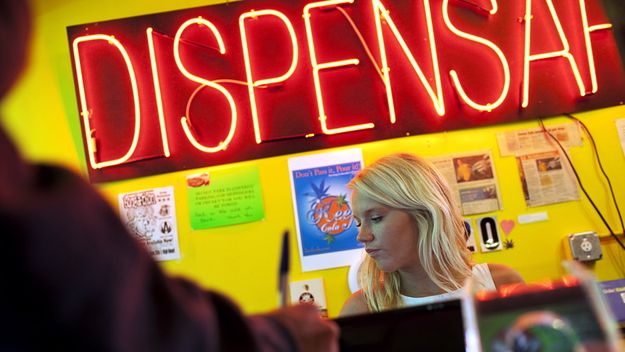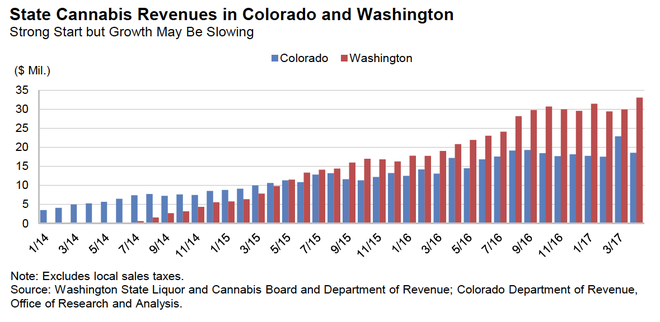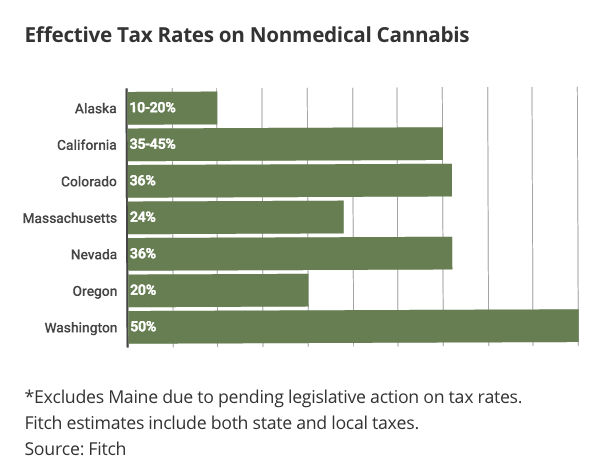For the United States, cannabis legalization has been one big experiment. Now, years after the first states legalized recreational marijuana, the country is starting to see results.
According to a recent report from international market research firm Fitch Ratings, legalization of recreational cannabis may lead to significant revenue for state governments, a decline in the price of cannabis, and implications for pot’s black market.
First, the firm predicts that state markets for recreational cannabis will “dwarf” the medical cannabis market, citing a larger pool of potential consumers. But, state monies won’t surge at the onset of legalization. In an analysis of Colorado and Washington (the two states with the longest history of legal recreational pot), early revenues were slow growing, but later exceeded initial estimates.
While cannabis taxes are only a drop in states’ multibillion dollar buckets, locations with legalized cannabis will save cash on fewer arrests and prosecutions and lower public health costs, including a lower rate of opioid abuse, the firm said.
The good news for consumers is, weed will get cheaper. Following legalization in Colorado, for example, the price of cannabis fell 31 percent, from about $1,900 per pound in 2014 to $1,300 per pound today. A decline in price will hurt state revenue in the future, the firm projects, unless the drop is met by an increase in cannabis consumption.
Despite a projected reduction in the price of pot, state taxation could also make legal weed so expensive that consumers dip back into illegal cannabis. In the case of California, however, the state currently produces so much cannabis that the legal market could overflow into the black market when sales go legal January 1.
Academic researchers recommend no more than a 30% tax rate on non-medical marijuana. States with cannabis taxes higher than that (we’re looking at you, Washington), the firm reports, may be missing out on potential revenue.
To view the full report, visit FitchRatings.com.


